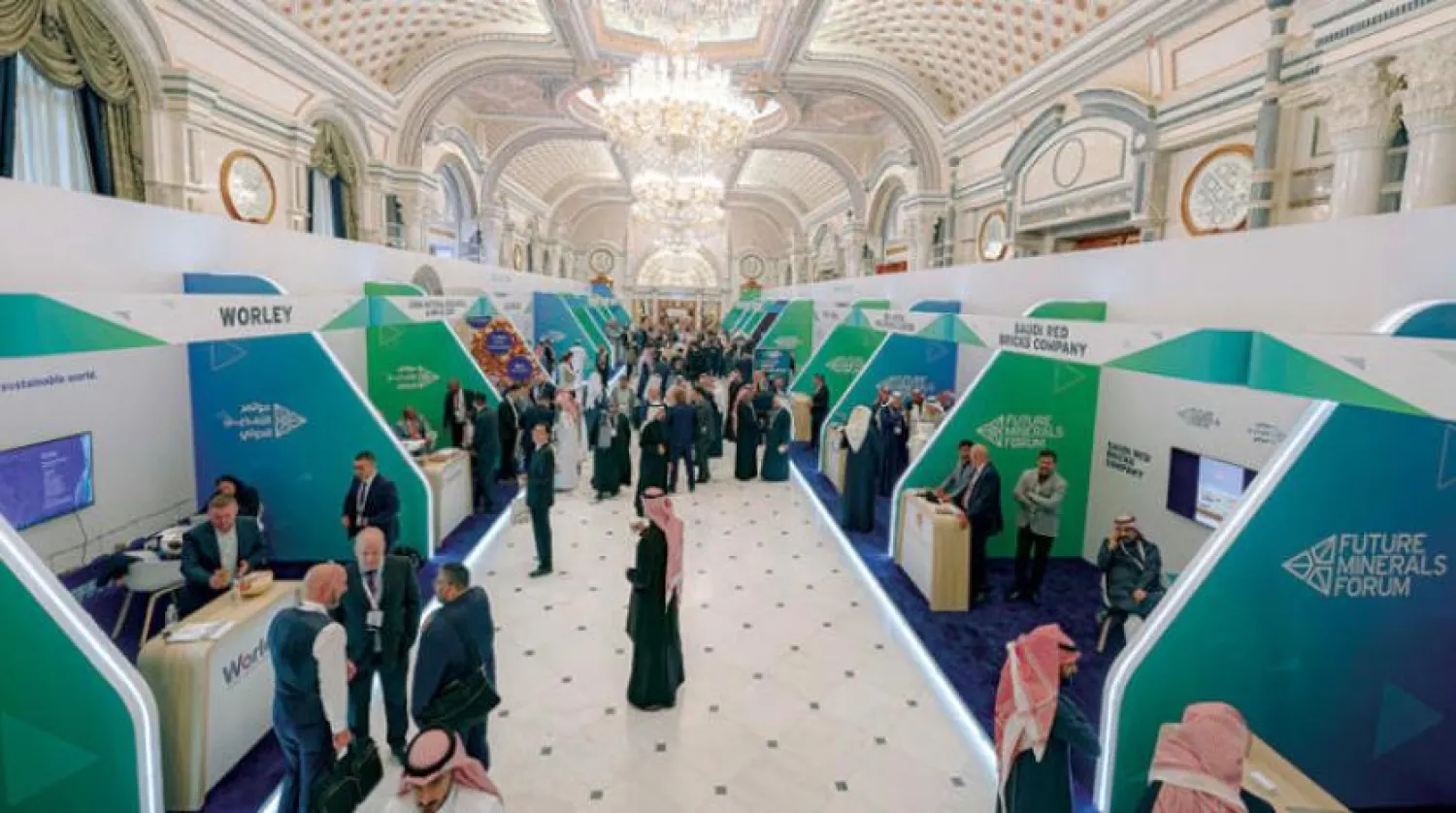Energy and mineral companies expressed intentions to expand and move towards public offering and listing in the financial market as the Future Minerals Forum concluded in Riyadh on Thursday, with the signing of 60 agreements and MoUs.
The event was held with the participation of 200 speakers and more than 12,000 participants, including investment leaders, heads of major mining companies, experts, service providers, and manufacturers from 130 countries.
The conference witnessed the signing of 60 agreements and MoUs in the field of mining and minerals industry between a number of participating government agencies, companies and institutions.
They included agreements in mineral exploration, technology, communications, application of sustainability standards, localization and qualification, and industrialization in the mining sector.
The event also saw an announcement by the King Abdulaziz City for Science and Technology (KACST) and the Arab Mining Company (Maaden) to establish a joint virtual center for research and development in mining technologies.
The virtual center will be located within KACST’s headquarters, and will work to identify the areas required to implement joint research in mining technologies.
Meanwhile, Bloomberg agency quoted sources as saying that Petromin - a global Saudi company specialized in the manufacture and production of oils, fuel provision and automotive services - plans to revive plans for its initial public offering in the Kingdom.
Quoting sources who spoke on condition of anonymity, the agency revealed that the company was working with Saudi National Bank and Moelis & Co. on the planned offering. Details of the deal, such as its size and timing, may change, according to the sources, who noted that more banks might also be added to the syndicate.
Khalid Al-Jahdali, CEO of Al Haytham Mining Company, revealed that the company was planning an imminent offering in the Saudi financial market, explaining that it was awaiting the completion of a relevant study by the financial advisor.









